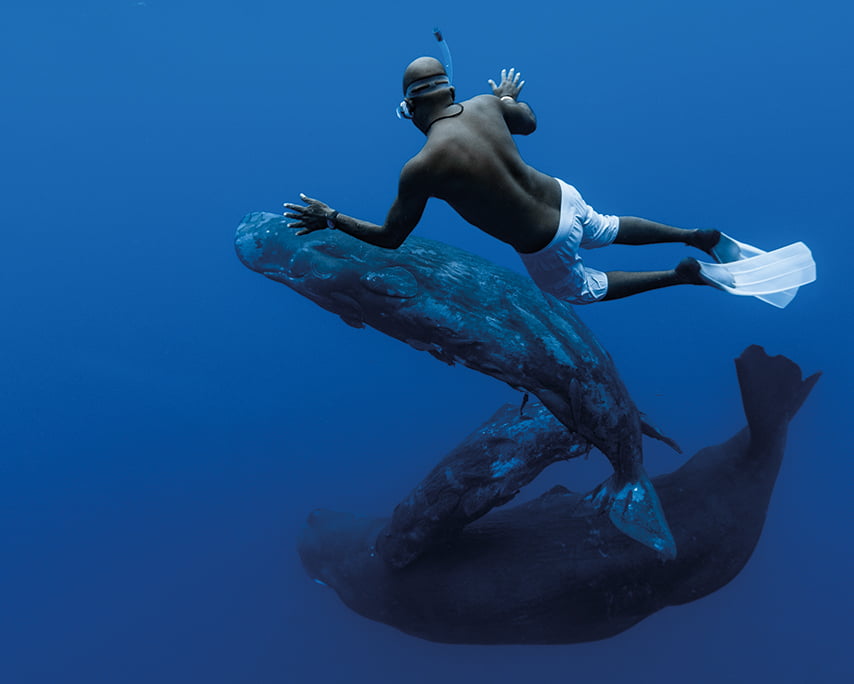World Oceans Day: Awaken New Depths
The world’s oceans, vast and seemingly inexhaustible, are under unprecedented pressure, complex issues that require a multifaceted approach. Addressing it necessitates collaboration across environmental, economic, social, scientific, policy, global, and individual concerns. Only through concerted and sustained efforts can we hope to replenish and protect our oceans for future generations. This World Oceans Day seeks to “Awaken New Depths” of our efforts and relationship with oceans to expedite our restoration of the ocean’s vibrancy and new life. The following perspectives highlight the urgent need for sustainable practices and conservation efforts for the world’s oceans.
From an environmental standpoint, the world’s oceans are in a critical state, facing unprecedented threats from overfishing, pollution, and climate change. The depletion of fish stocks, disruption of marine ecosystems, and the health of marine life due to pollution, including plastic waste, oil spills, and chemical runoff, are alarming. The ocean’s acidification and rising sea temperatures, a result of climate change, are at an all-time high, severely impacting coral reefs and biodiversity. The significant loss of marine biodiversity has far-reaching effects on global ecosystems. This stark reality underscores the immediate need for conservation measures.
In coastal communities, the oceans are a vital source of livelihood for millions of people, and the fishing industry, tourism, and maritime trade heavily rely on healthy ocean ecosystems. However, the depletion of marine resources threatens these economic activities. For example, overfishing leads to the collapse of fish stocks, endangering food security and the financial stability of communities dependent on fishing. For such a scenario, sustainable fishing practices and policies are essential to ensure the long-term viability of these economic sectors. Socially, the impact of ocean depletion, particularly for coastal communities in developing regions, threatens their way of life, leading to food insecurity and loss of income. Additionally, there are cultural implications, as many communities have traditions and practices deeply rooted in their relationship with the ocean. Consequently, protecting ocean health is about preserving ecosystems and safeguarding cultural heritage and social well-being.
From a scientific point of view, we are reaching critical tipping points where marine ecosystems may not recover. Scientists emphasise the need for a better understanding of marine biology, ecology and the impacts of human activities on the oceans. What scientists can do is continue advancing marine science and technology to help monitor ocean health, develop sustainable practices and implement effective conservation strategies.
On a global scale, the health of the oceans is a shared concern that transcends national boundaries. International collaboration is not just beneficial, it’s essential to address issues like illegal, unreported and unregulated (IUU) fishing, marine pollution, and the impacts of climate change. Countries must work together to implement global solutions and share best practices for ocean conservation. From a policy perspective, international cooperation and robust regulatory frameworks are crucial. To enhance the feasibility of such cooperations, policies addressing overfishing, marine pollution and climate change impacts on oceans need to be enforced globally. Initiatives like Maritime Security Programmes (MASE) in the Western Indian Coast, sustainable fisheries management, and other international agreements such as the United Nations Convention on the Law of the Sea (UNCLOS) play a pivotal role. Policymakers must balance economic interests with environmental sustainability to ensure the long-term health of the oceans.
Individually, we all have a role to play in the stewardship of the oceans. The principle of intergenerational equity reminds us of our responsibility to future generations to protect and preserve the oceans. This extends to animal welfare, as many marine species suffer due to human activities. Shifting towards more ethical and sustainable practices in how we exploit ocean resources is a necessary step. On a personal level, our everyday actions can contribute to ocean health. By reducing plastic use, supporting sustainable seafood choices, participating in beach clean-ups, and advocating for stronger ocean protection policies, we can make a difference. Public awareness and education about the importance of the oceans can drive collective action towards a more sustainable future.
To “Awaken New Depths” to ocean conservation calls for a renewed, deeper and more comprehensive effort to understand, protect and restore the world’s oceans. It highlights the urgency of sustainable practices and conservation efforts, recognising the multifaceted approaches needed from various sectors and perspectives to ensure the oceans remain vibrant and full of life.



